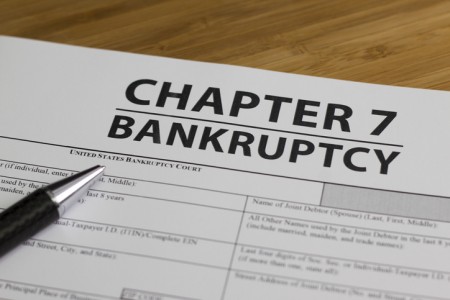Important Keys to Rebuilding Your Life After Chapter 7 Bankruptcy in Georgia
Chapter 7 Bankruptcy is the form of bankruptcy that is often referred to as a fresh-start bankruptcy because it eliminates most non-secured debt by liquidating excess assets in order to pay off creditors as you can afford to.
In the immediate aftermath, most people are mostly debt free but have little access to immediate credit options. Filing bankruptcy is most likely a major event in your life, and your life will most likely look a little different afterward.
Using Your Exemptions Wisely
Since Chapter 7 Bankruptcy is designed for those who are living with less than the median income in their state, it will probably not shock you that you won’t be able to live “high off the hog” once your bankruptcy is discharged, but your life doesn’t have to be destitute either. There are several exemptions that the state allows that can keep you from making hardship-level sacrifices. Some of these exemptions include:
- Homestead Exemption – $21,500 in real estate or personal property if single – $43,000 if married, even if owned by only one spouse. If unused, the homestead exemption may be used to protect a burial plot
- Motor Vehicles valued up to $5,000
- Jewelry – valued up to $500
- Miscellaneous Personal Property – valued to $5,000 including animals, books, furniture, household goods, or instruments
- Support Payments
- Any child or spousal support will not be considered when liquidating assets
- Public Benefits
- Worker’s Compensation Payments
- Unemployment
- Social Security
- Veteran’s Benefits
- Disability Benefits
- Crime Victims Compensation
- Wages
- Wages will be kept at at least 75% or forty times the Federal Minimum Wage
- Work-related Items – up to $1500 worth of books or other tools needed to do your work can be kept
- Pensions and Retirement Accounts
- Various proceeds from life insurance and related dividends.
- Public Assistance
What Will My Life Look Like After Bankruptcy?
One thing many people fear is that they will not be able to get credit after filing Chapter 7 since the bankruptcy can stay on file for 7-10 years. While rebuilding takes time (some people have a “lost decade”), offers for credit do start to come fairly soon after the bankruptcy is discharged, but this can be a mixed blessing. The first offers often come as either secured credit cards or ones with high interest and fees and low credit limits. It is a good idea to practice restraint and live without credit until you are ready for that next step. When you begin using credit, start by using it only for small purchases that can be paid off before the interest kicks in. With timely payments, your ability to buy things on credit, including purchases such as a home or car, will improve and you will be able to secure a stronger financial future.
At Clark & Washington Attorneys and Counselors at Law in Atlanta, GA, we look at each case individually and help you choose the financial decision that is right for you. Contact us at 770-691-1220 or online to set up a free consultation.



